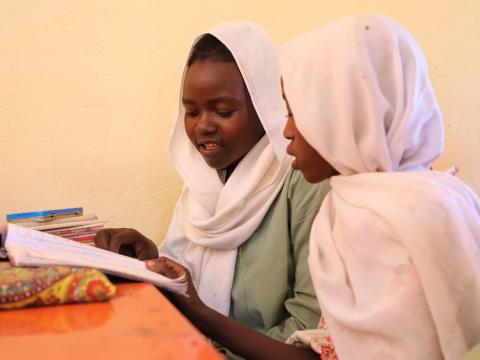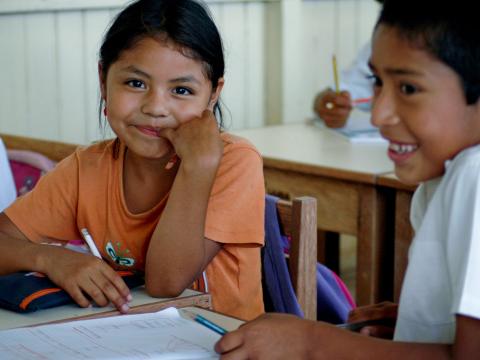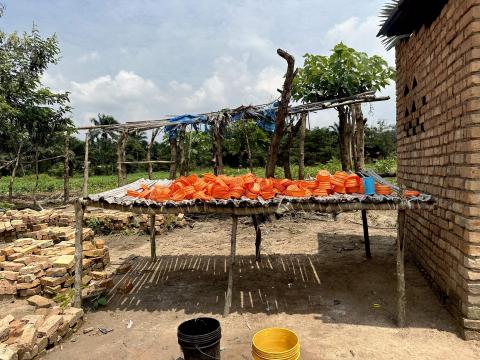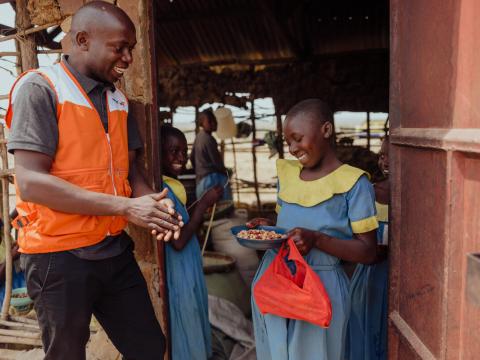
Schooling for Sudan’s 19 million children could only be five steps away
Inos Mugabe says the effect of 90% of Sudan’s children being denied education is more devastating than just learning.
19 June, 2024
A year since conflict in Sudan began it rages on. Not only does it claim and blight lives, the conflict also derails children’s chances to learn. Years ago, Sudan had agreed to work towards meeting the Sustainable Development Goals including Goal 4 "to ensure inclusive and equitable quality education and promote lifelong learning opportunities for all". Nevertheless, schools in Sudan have remained closed since April 2023 when the conflict started.
Re-opening schools is not a simple thing to do. Most schools are being used to house almost 6 million internally displaced and vulnerable people. The school infrastructure has also been severely damaged and requires urgent rehabilitation for use as an educational establishment. Other critical facilities, like provision of clean water and adequate sanitation, need an urgent revamp as well.
In addition, teachers would require financial incentives to motivate them to work—something the government can currently not do afford or organise. The sad truth is that, even if the schools were to be reopened today, it would be impossible in their current state to provide meaningful and safe learning spaces for school children because of the ongoing violence around them.
No school means worse than no education
There are 19 million children out of school and UNICEF has warned that it is on the verge of becoming the worst education crisis in the world. This is because school for many children also means food, protection from violence, and a place where they can be happy and play.
Prior to the crisis in 2023, World Vision Sudan, in partnership with the World Food Programme (WFP), supported more than 120 schools in South Darfur, East Darfur and Blue Nile States, giving more than 200,000 school-aged children with hot-meals in school. For some children, this was their only meal of the day. The hunger and malnutrition crisis in Sudan is deepening with over 20 million people (about the population of New York) facing acute malnutrition with more than 48% of those being children. Resuming school meals is critical to preventing famine.
Reports of early child marriages, abuse and sexual and gender-based violence against children of school-going age continue to surface during this current conflict. This often happens when particularly displaced children have nowhere safe to go during the day. Where the children are able to attend school there would still need to be the provision of psychosocial support to the children living with the terrible memories of what they have seen and experienced because of the conflict.
The world must act now before the children of Sudan are set back even further. If these five action items are implemented, the education of millions of children could be restored:
- Advocate for cessation of hostilities to enable access
- Fundraise for more resources to cater for the needs of children to enable them return to school
- Increase protection services (mental health issues) aimed at children and their families
- Ensure that decision-makers everywhere act to save a generation living through the Sudan crisis
- Parties to the conflict agree to reopen schools in safe locations
Ending conflict is not easy, but if we put Sudan’s children at the centre of our thinking, everyone will see that getting them back to school is vital for them now and into the future.
- To learn more about World Vision’s work in Sudan click here
- Read the Joint Statement on the 2024 Day of the African Child and the World Day Against Child Labour - Let’s act on our commitments: Education for all and end child labour. The time is now! Click here
Inos Mugabe is the Operations Director, World Vision Sudan. He has over 20 years of experience in the humanitarian sector. He has worked in various fragile contexts and hard-to-reach locations in Zimbabwe, Haiti, Mozambique, DRC, South Sudan, Ukraine Crisis Response.


